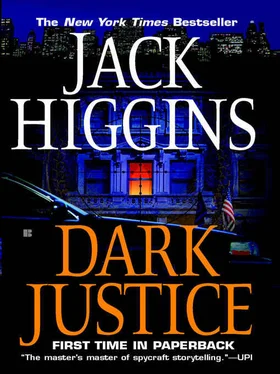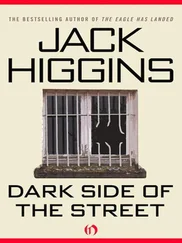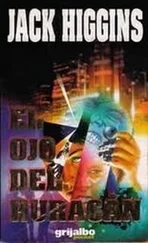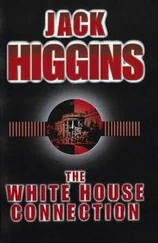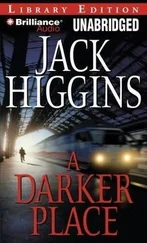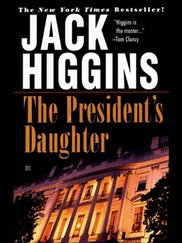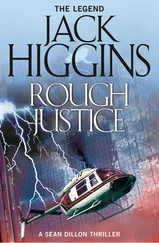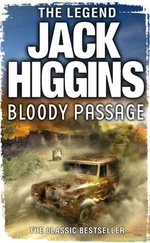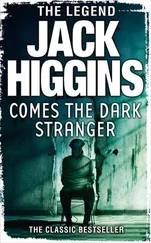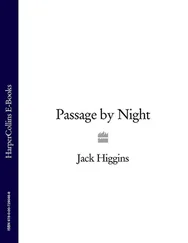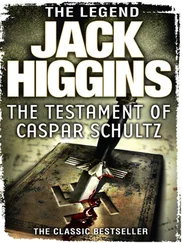So Belov was pro-Arab, but only because it suited him. There was no doubt he was anti-American, but for obvious business reasons. The Brits were all right, because the Brits were the Brits and he had a weakness for London, but his old philosophy held true and was like a devil in him. To create chaos, fear and uncertainty in the Western world and in pursuit of those aims, it made sense to aid the cause of Muslim militants. But that side of things he left to Yuri Ashimov. It was not that he didn’t want to know – it was just that he didn’t want to know too much.
The money, of course, made all the difference. There were charitable trusts, educational trusts for young people, in reality fronts for those like Wrath of Allah, the Party of God and others, who were particularly dedicated to such enterprises as, for example, recruiting young British-born Muslims to take them to training camps in the Middle East. He had been informed of the Morgan affair in Manhattan, the intended attempt on the American President’s life, an enterprise so simple it might well have succeeded if it hadn’t been for the activities of Charles Ferguson and his people.
But he was separate from all that. When the Berger empire crashed, he had taken over its oil interests in southern Arabia. There was nothing America could do about that. It made him one of the most powerful businessmen in the world, highly approved of by the Russian Federation.
He had the old Rashid house in South Audley Street in London; he’d bought Drumore Place, his castle on the cliffs of Drumore in the Irish Republic, and put Dermot Kelly in charge, ostensibly as estate manager, and the money continued to roll in.
He was Josef Belov, man of mystery, unbelievably wealthy, and always at his side was Yuri Ashimov.
NORTHERN IRELANDNANTUCKET
7
Ashimov arrived at Belfast Airport in a company jet, and could have taken a helicopter onward to Drumore on the Louth coast, but instead, he’d had a car organized by his people in Belfast, or Belov’s people, to be strictly accurate.
It was raining, but no surprise in that. It seemed to rain five days a week in Belfast, but he liked that and he liked Northern Ireland and the accent in which people spoke, so different from that in the Republic. It was a wonderfully beautiful place, which was why he preferred to spend a couple of hours drivng through the mountains and then crossing the border into the Irish Republic and following the coast road to Drumore.
There was a Beretta, his preferred weapon, in the glove compartment. No border checks in these days of peace. He checked it, put it under his raincoat for easy access and drove away. The rain beat down, he turned on some music on BBC Radio, sat back and enjoyed the whole experience. There he was, born in the Ukraine, and yet he loved these crazy people.
An hour and a half later, and the Irish Sea stretched away to his left on the coast road, wind and rain driving in, and he was whistling along with the BBC when he saw Drumore Village in the distance, and the castle, Drumore Place, standing tall on the edge of the cliffs outside. It was an imposing sight, with towers and battlements and everything you would want a castle to have. There was only one problem. It wasn’t particularly ancient. It had been built by Anglo-Irish Lord Drumore, wealthy from the sugar trade in the West Indies, in the early nineteenth century, his homage to the romantic tradition, and none the worse for that.
Ashimov drove down through the small port, turned into the parking lot of the local pub, the Royal George, which sounded as Orange Loyalist as you would have liked and dated from Loyalist times. But the people locally liked their traditions, and in spite of being staunchly Republican, refused to have the name altered.
As Ashimov got out of his car, a van drew up alongside. There were two young men in it. The one opening the passenger door bumped into Ashimov as he was getting out.
The youth, longhaired and unshaven and wearing an old combat jacket, got out, full of aggression.
“You want to watch it.”
“I’m sorry,” Ashimov said.
“Stupid prick.”
Ashimov reached in the car, found the Beretta and put it in his pocket. “If you say so.”
He walked to the pub entrance, and the young man and his driver burst into laughter. “I said he was a prick.”
Inside, the bar was totally traditional, a beamed ceiling, dark oak booths, logs burning on the great stone hearth, an old marble-topped counter, the barman reading a newspaper, any bottle a man could fancy ranged behind him.
By one of the bow windows, a man of around fifty sat eating a meat-and-potato pie. He had red hair, a reckless look to him, and a slight smile. This was Dermot Kelly, a veteran since the age of seventeen of the Irish troubles. The man who sat in the window seat close to him, smoking and reading a book, was one Tod Murphy, who looked like some sort of intellectual, with his black hair flecked with gray, and steel spectacles. Once a student of theology intent on the priesthood, he had followed the same path as Kelly, although in his case it had included fifteen years in the Maze Prison for murdering five people. It was only the Peace Process that had released him. He looked up, saw Ashimov at the bar and smiled.
The barman, without being told, had taken a bottle of cold vodka from the bar fridge and poured a large one. Before Ashimov could touch it, the two youths who had followed him in ranged alongside him. The youth in the combat jacket picked up the glass.
“What in the hell would this be?” He drank some and made a face. “What kind of shite is that?”
“My kind, and as you’ve touched it, you can buy me another.”
“You what?” The youth grabbed for the front of Ashimov’s coat and the Russian head-butted him.
The youth went down, and his friend cried out in anger and reached for the bottle of vodka on the bar. Dermot said, “Tod.”
Murphy stood up, still holding his book. “Not in here, not without Dermot Kelly’s say-so. I don’t know where you’re from, but this is an IRA pub and this gentleman is a friend of ours.”
“Fuck you,” the youth said and smashed the bottle on the edge of the marble bar. Murphy kicked him under one knee and Ashimov grabbed him by the collar, screwed a short punch into his kidneys and ran him headfirst through the front door.
“Better clear the mess, Michael,” Murphy said to the barman. “The terrible times we live in, Major. Kids down over the border from Belfast, always high on something. If it’s not the drugs, it’s the booze. But not in Drumore. We like a bit of law and order here.”
“IRA law and order.”
“Children can walk to school safe here, old people rest easy in their homes, young women walk home from the village dance, and with Mr. Belov the squire now, most people are in work and grateful. Farms around here are prosperous, thanks to Mr. Belov. If you were hoping to see him, he left yesterday in the helicopter for Belfast and onwards to Moscow.”
“I knew.”
“He’s a close one, Mr. Belov.”
“Because he’s what you might call preoccupied with business on a worldwide scale. Anything else, he leaves to me. Now, what have you got for me?”
Tod Murphy, who as well as learning Irish in the Maze Prison had managed reasonable Russian, held up the book and said in that language, “ The City of God , by St. Augustine. Serious reading for a serious man.”
“So you still believe in God in spite of having walked over corpses all these years.”
“Oh, yes,” Tod Murphy said gravely. “Hell and damnation exist, redemption is possible. Christ is risen.”
“As to walking over corpses, Major, we’ve all done that, as I understand it,” Kelly told him.
Читать дальше
Конец ознакомительного отрывка
Купить книгу
